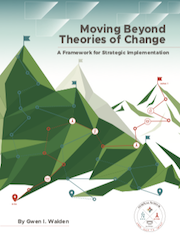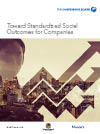Site Search
- resource provided by the Forum Network Knowledgebase.
Search Tip: Search with " " to find exact matches.
The Bridging The Gap: Blacks in Philanthropy conference, is organized by the Smith Family Foundation.
Their mission for this conference is to promote philanthropy and drive social change in the community, and this event is a vital step toward achieving that goal. The conference is expected to draw over 300 attendees, including philanthropy professionals, non-profit executives, community leaders, and interested individuals. The agenda features keynote speeches, panel discussions, workshops on racial equity, diversity, and inclusion in philanthropy, and strategies for advancing social justice. This conference is a unique opportunity to engage in collaborative discussions, gain valuable insights, and build meaningful connections with like-minded individuals who share a passion for creating positive change. Together, we will explore innovative strategies, best practices, and impactful initiatives that empower and uplift black lives.
Cost: $100
Open to all Grantmakers
Narratives shape policy, sway elections, and determine whose voices are heard or silenced. Media is not just a communication tool: it is civic infrastructure, as essential to democracy as roads and schools. Yet the systems that shape our shared understanding are collapsing, consolidating, or being strategically captured.
This four part Media Learning Series designed in partnership with Independence Public Media Foundation is for funders who recognize that the fight for justice, equity, and democracy is also a fight over the stories we tell, and who gets to tell them. Through four dynamic sessions, we’ll explore how media and narrative power underpin every funder’s work, regardless of sector. Participants will move from conceptual understanding to actionable strategies for funding community-driven media and narrative ecosystems that can endure and adapt over time.
Across the series, you will:
Understand how today’s media systems shape public imagination, democracy, and movement building and why current funding approaches often fall short.
See how community led narrative work fuels organizing, shifts policy, and builds long-term power.
Learn how to assess and invest in the media and information needs of the communities you serve.
Leave with concrete steps, peer connections, and tools to begin or deepen your media funding practice.
SESSION LISTINGS:
Session 1 – Wednesday, 10/8, 12-1 PM via Zoom
Who Tells the Story?: Media, Power, and Philanthropy’s Role in Shaping the Narrative
Session 2 – Wednesday, 10/22, 12-1 PM via Zoom
How Narrative Fuels Organizing, Movement-Building, and Policy Change
Session 3 – Wednesday, 11/5, 12-1 PM via Zoom
Building Community Information Power from the Ground Up
Session 4 – Wednesday, 11/19, 12-2 PM In-person (location TBD)
Taking Action, Learning, and Adjusting: Building a Media Funding Practice that Lasts
We encourage you to attend the entire series, as each series will build on the last. However, we welcome you however you can show up. Recordings and resources will be available after each meeting. The stakes are high and the moment to act is now. Funders who engage today can help ensure that tomorrow’s media landscape reflects the full diversity, truth, and resilience of our communities.
Presented by Philanthropy Network Greater Philadelphia
The Provident Bank Foundation (PBF) today named its Major Grant recipients for its second cycle of 2021. The Foundation awarded nearly $450,000 of total funding to 27 nonprofit organizations within the Foundation’s three priority areas of Community Enrichment, Education and Health, Youth & Families.
Grants provide funding between $5,000 and $25,000 to organizations across the New Jersey, New York and Pennsylvania communities served by Provident Bank.
“We are thrilled to offer funding opportunities to some of the outstanding nonprofits that are continually raising up our community,” said Samantha Plotino, Executive Director of The Provident Bank Foundation. “From medical services to educational programs to food banks, these organizations are very valuable to residents across New Jersey, New York and Pennsylvania. Additional funding will allow their various programs to continue to thrive and make an impact.”
The Council of New Jersey Grantmakers invites members – and prospective members – from across the state to gather for an evening of connection and community. Rooted in CNJG’s mission of fostering shared learning, collaborative and trusting relationships, and network building, this event invites philanthropic peers to connect, converse, and cultivate meaningful connections in a welcoming and convivial setting.
The afternoon will include a brief welcome from CNJG leadership and our hosts followed by open time to mingle, share stories, and strengthen the trusted relationships that form the heart of our community. A tour of the arboretum grounds will be available for those interested.
Whether you are looking to reconnect with long-time colleagues, meet new peers from across the state, or cultivate new ideas that may spark future collaborations, this social offers the chance to deepen relationships that sustain and strengthen New Jersey’s philanthropic sector.
About the Arboretum: Once a country estate, Reeves-Reed Arboretum is now a 13.5 acre public garden listed on the National and State Registers of Historic Places. Its estate and gardens represent design trends by prominent late 19th and early 20th century landscape architects, including Calvert Vaux, a partner of Frederick Law Olmsted. More information can be found here.
This meeting is for grantmakers only.
There is no cost to attend this event.
Light refreshments will be provided.
CNJG thanks Investors Foundation and the Maher Charitable Foundation for underwriting the costs of the social
Grantmakers Concerned with Immigrants and Refugees (GCIR) in collaboration with National Committee for Responsive Philanthropy (NCRP), present a briefing that features a panel of speakers representing nonprofit organizations working on the front lines to strengthen our democracy and advance immigrant rights in their communities. Don’t miss this opportunity to hear what groups need as we move into 2025 and beyond, directly from movement leaders.
According to a report from National Committee for Responsive Philanthropy, since 2012 there has been an 11 percent shrinkage in philanthropic funding towards immigrant movement groups. While there was an uptick in rapid response funding between 2017-2018, this has not created the conditions for the long term sustainability of immigrant serving organizations.
In a critical election year, over 60 anti-immigrant bills have been introduced in state legislatures nationwide. Immigrant advocacy groups – already facing a myriad of historically systemic challenges such as burnout, unlivable wages, and hostile state level political environments – are facing this wave of anti-immigrant sentiment, often at the sacrifice of their own safety and well being. And while philanthropic interest has focused on the national elections and scenario planning, movement groups are already planning for 2025 and an uncertain future regardless of presidential election outcomes. Philanthropy must not only meet this moment but also invest in the critical infrastructure needs of organizations and movements, particularly at the local and state levels.
As right wing movements seek to undermine our democracy on all fronts, immigrant communities cannot be left behind and must be included in any political, social, or philanthropic efforts that seek to build a multi-racial democracy. Built through the collaborative efforts of GCIR and NCRP, this briefing will feature a panel of speakers representing nonprofit organizations working on the front lines to strengthen our democracy and advance immigrant rights in their communities. Don’t miss this opportunity to hear what groups need as we move into 2025 and beyond, directly from movement leaders.
Cost: Free for Funders
Must log in or create an account to register on GCIR’s website.

Effecting systemic change through philanthropic initiatives requires not only a strategy but a well-constructed implementation plan focused on "people, partners, and platforms.” According to a new report, Moving Beyond Theories of Change: A Framework for Strategic Implementation, philanthropic organizations hoping to achieve impact must align the partners, approaches, and organizational commitments before they begin to design programs, issue Requests for Proposals, or even hire staff. The report further suggests frameworks should include diversity, equity, and inclusion (DEI) efforts and partnerships with intermediaries and donor collaboratives.

A new pilot study from The Conference Board and the Impact Genome Project® (IGP) introduces standardized social outcomes to help measure and compare the performance of societal investments. The standardized outcomes allow for benchmark metrics, including efficacy rates and cost per outcome. The study used data from 16 companies whose funding contributed to nearly 650 nonprofit programs. The benchmarks provide new insights into the effectiveness of corporate societal investments.
The William Penn Foundation commissioned a study to move beyond the anecdotal and see if and how students benefited from being involved in some of its grantee arts programs. The research by WolfBrown, working with Johns Hopkins University, showed that participating in the arts help students develop traits that contribute to later success in life. Younger students especially showed measurable growth in characteristics like tolerance for other points of view, an understanding that hard work can develop their knowledge and abilities, and their motivation to achieve.
There is widespread and growing recognition in the nonprofit sector about the importance of evaluation — not only for measuring impact, but also for improving programs and better serving communities. While grantmakers generally see evaluation as necessary, most are not yet investing enough resources in this area.
This guide discusses six principles for successful evaluation capacity building. By applying these principles, grantmakers can make the most of our evaluation investments and help our grantees become more effective and sustainable organizations.
Join us for an informative session with Justin Scheid, New Jersey Field Office Director at the US Department of Housing and Urban Development. The Field Office manages a range of important programs and special initiatives, including Opportunity Zones, EnVision Centers, Section 3 economic opportunities, Promise Zones, ConnectHome, and homelessness.
During this discussion, Justin Scheid will share updates on CARES Act Funding and other HUD related programs and resources critical to COVID recovery and relief. We’ll also discuss strategies for philanthropy to partner with HUD to leverage resources and maximize impact in local communities.
Cost: Free for CNJG Members. $50 for Non Member Grantmakers
Webinar Video
In Q2 2021, our foundation awarded 29 grants totaling over 12 million dollars. Of these, 9 grants were new, while 20 were renewals. Our Q2 grantmaking aligns with our updated funding model, which focuses our work on identifying and fueling the scale of cost-effective programs and solutions that accelerate improvement in key academic and socioemotional outcomes for all children. Inspired by venture philanthropy, the model puts an emphasis on grantmaking and strategic support that unlock innovation, evidence, and growth.
In Q1 2022, our foundation awarded 41 grants totaling over $12 million dollars. Of these, 17 grants were new and 24 were renewals.
Our first quarter grantmaking aligns with our updated funding model, which focuses our work on identifying and fueling the scale of cost-effective programs and solutions that accelerate improvement in key academic and socioemotional outcomes for all children. Inspired by venture philanthropy, the model puts an emphasis on grantmaking and strategic support that unlock innovation, evidence, and growth.
